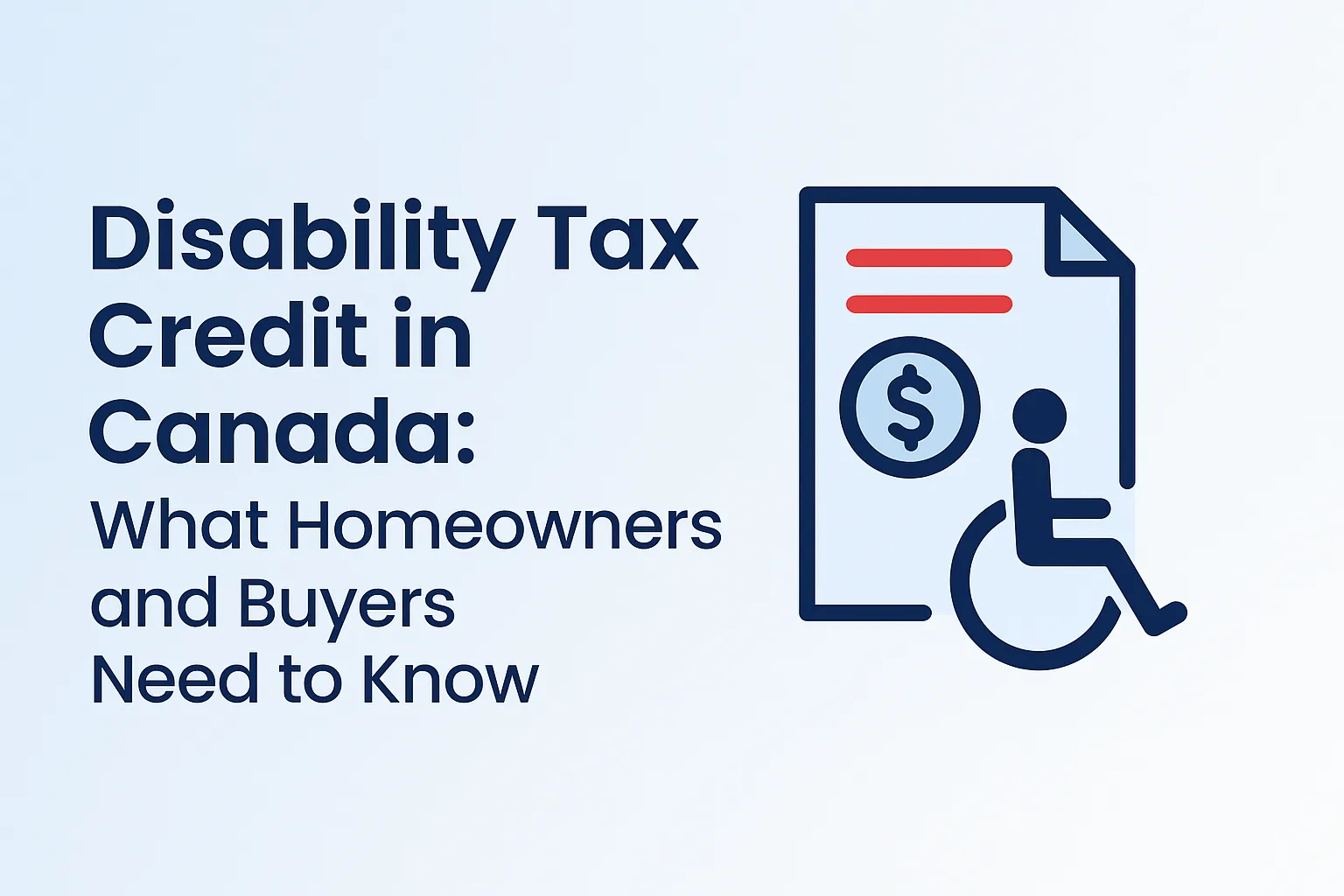The Disability Tax Credit (DTC) is a vital financial support program in Canada that can significantly ease the burden for individuals living with a disability. For homeowners, buyers, and even investors, understanding how this credit works can lead to strategic financial planning and improved affordability.
Why It Matters
Homeownership comes with many financial responsibilities, and for individuals or families managing a disability, these can be even more challenging. The DTC provides much-needed tax relief, which can be used to offset living costs, accessibility renovations, or even help with mortgage payments. Knowing how to qualify and apply can make a substantial difference.
Who It Matters For
- Individuals with Disabilities: Anyone with a severe and prolonged impairment may be eligible.
- Family Members or Caregivers: If you support someone who qualifies, you may be able to transfer the credit.
- Home Buyers and Owners: The DTC can affect your eligibility for other related programs.
- Real Estate Investors: Understanding tenant eligibility can help when investing in accessible housing.
Key Points and Steps
- Eligibility: You must have a severe, prolonged impairment verified by a medical practitioner.
- Application: Submit Form T2201 to the CRA, including a signed section by your healthcare provider.
- Tax Relief: The credit reduces the amount of income tax you owe; unused credits may be transferred.
- Claim Amounts: For the 2024 tax year, the federal non-refundable tax credit is $9,872. For those under 18, an additional supplement of up to $5,758 may be available. Provincial amounts vary.
- Home Renovations: You may qualify for additional credits or grants, like the Home Accessibility Tax Credit (HATC).
- RDSP Eligibility: Approval for the DTC may open access to the Registered Disability Savings Plan.
Real-Life Scenario
A couple in Ontario caring for their son with a disability used the DTC to receive over $1,200 in annual tax relief. They combined this with the HATC to renovate their home’s entryway for wheelchair access. The tax savings helped them manage their mortgage payments and invest in accessibility upgrades.
Detailed Example: John, a 45-year-old from British Columbia, was approved for the DTC due to a severe mobility impairment. He claimed the federal disability amount of $9,872, which gave him about $1,481 in federal tax savings (based on the 15% federal tax rate). Additionally, the provincial portion in B.C. gave him another $527, totaling $2,008 in tax relief. Over the past 5 years, John successfully retroactively claimed the credit, resulting in nearly $10,040 in tax refunds, which he used to retrofit his bathroom and entry ramp.
FAQ
Can I claim the DTC for past years? Yes, you can request adjustments for up to 10 previous tax years if eligible.
Does the DTC affect my eligibility for other programs? Yes, programs like the HATC and RDSP often require DTC eligibility.
How long does approval take? Processing times vary, but generally take 8–12 weeks.
Conclusion
The Disability Tax Credit is more than just a tax break—it’s a gateway to enhanced financial support for Canadians living with disabilities. Whether you’re a homeowner, buyer, or investor, understanding the DTC can help you make better decisions and improve quality of life.

